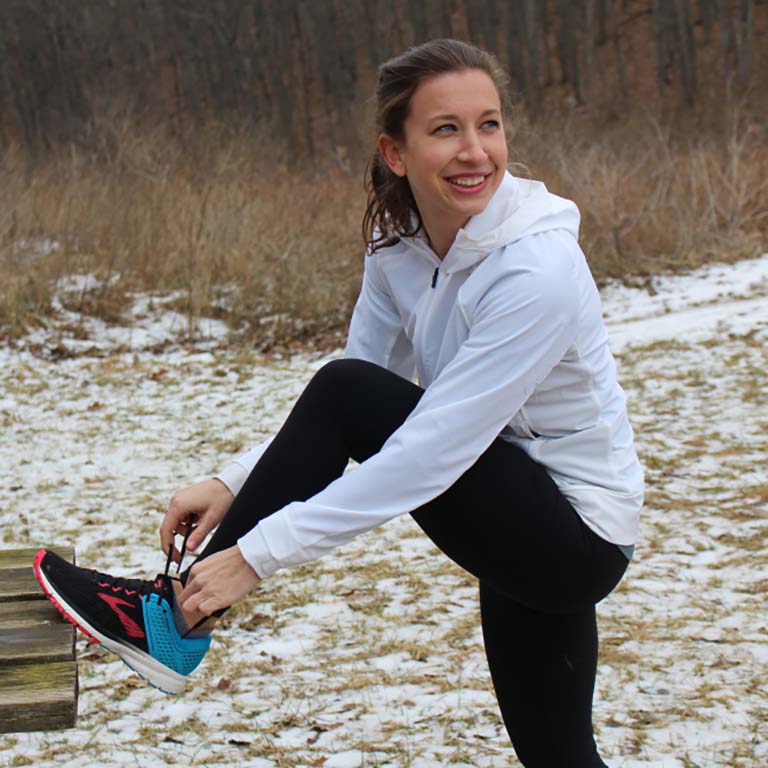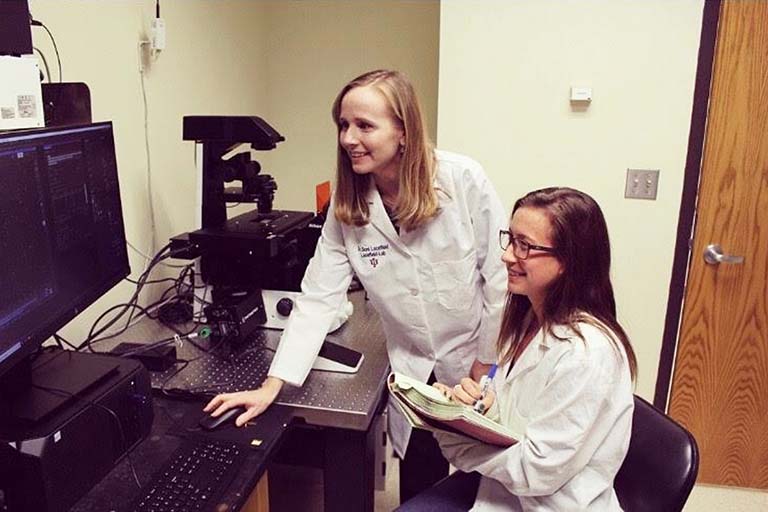Ballew is a Ph.D. candidate in IU Biology’s Genome, Cell, and Developmental Biology Graduate Program; she is a member of Associate Professor Soni Lacefield’s lab. Ballew’s research focuses on repair of DNA damage, working to better understand how errors in DNA are passed from parent to child.
Ballew explains: “The average human body comprises over 30 trillion cells. These cells must safeguard their genomes throughout their lifetime to prevent diseases and cancer. Additionally, humans must be able to faithfully pass on their genetic information (DNA) to subsequent generations. There are two main mechanisms to divide a cell: meiosis and mitosis. In humans, meiosis produces female eggs and male sperm while mitosis produces the remainder of the cells in the body. Although cells most often faithfully divide, the processes of meiosis and mitosis are not completely error free. Checkpoints are the surveillance mechanisms in cells that sense these errors and delay cell division, allowing the cell time to correct errors. Research into meiotic checkpoints is necessary because errors can lead to developmental disorders and infertility. Similarly, studying mitosis is imperative because many cancer cells have defective checkpoints which allow unrestrained cell division.”
Ballew ran track and cross-country in high school in Roanoke Rapids, North Carolina. Although she received some offers to run in college, she didn’t pursue them. She majored in biology at University of North Carolina where she developed an interest in genetics that led her to study at IU.
Not having run competitively since 2008, Ballew began to train again in late 2016. Remarkably, after only two years of training, she has found herself in the position to compete with some of the country’s fastest marathoners.
Ballew’s days are busy—juggling laboratory work and school with running. She has little time to socialize.



 The College of Arts
The College of Arts